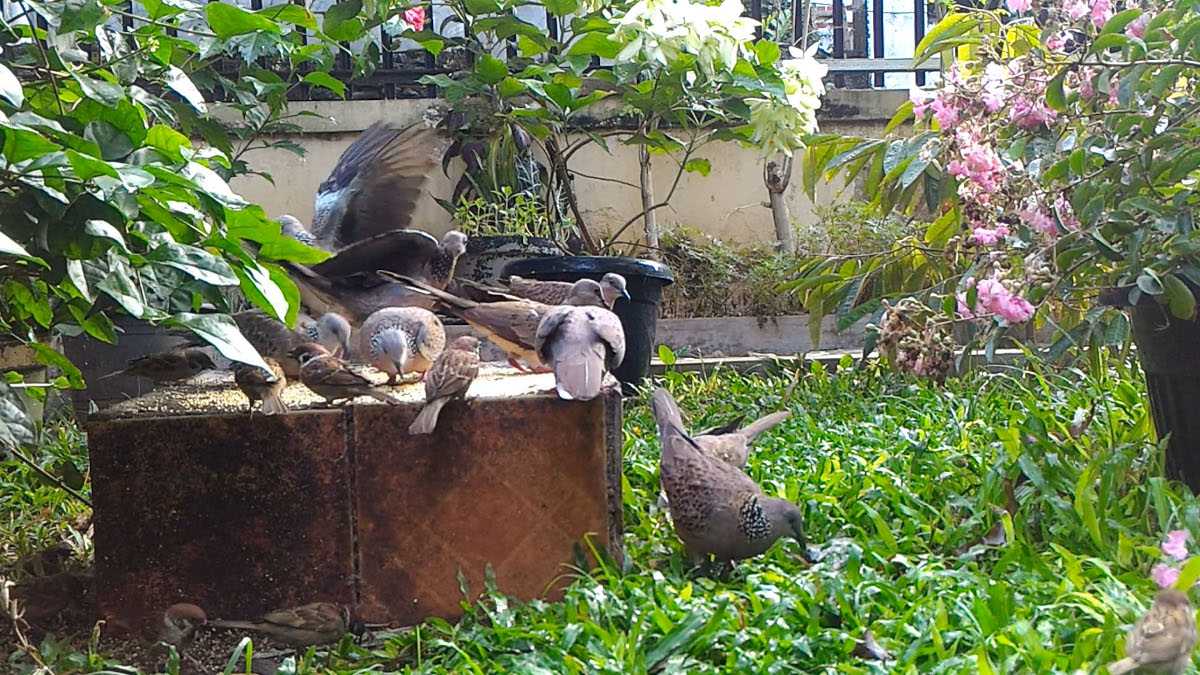 Dewanto House (Wisma Dewanto) is a Jesuit residence located in the midst of Indonesia’s capital, Jakarta. Originally a picturesque two-storey Dutch house built in 1919, it is home to two priests, five Indonesian and two Myanmar scholastics in their philosophy studies, and two Canaan dogs. The house takes its name from Fr Tarcisius Dewanto SJ, who along with Fr Albrecht Karim Arbie SJ, was murdered during the violence in East Timor 21 years ago.
Dewanto House (Wisma Dewanto) is a Jesuit residence located in the midst of Indonesia’s capital, Jakarta. Originally a picturesque two-storey Dutch house built in 1919, it is home to two priests, five Indonesian and two Myanmar scholastics in their philosophy studies, and two Canaan dogs. The house takes its name from Fr Tarcisius Dewanto SJ, who along with Fr Albrecht Karim Arbie SJ, was murdered during the violence in East Timor 21 years ago.
Dewanto House and its neighbourhood exude an atmosphere different from the bustling streets outside. The Jesuit residence stands out with its green environment and simple yet gorgeous vintage look. Unlike many houses in Jakarta where free spaces have been covered with concrete, Dewanto House preserves a modest front yard with grass and vegetation. A flamboyant tree with beautiful red flowers stands firm and tall in the centre of the yard. Since the Covid-19 pandemic, the east side has been turned into a small vegetable garden that grows chili, moringa (Moringa oleifera or kelor in Indonesian), bok choy (or pakcoy), ginger, lettuce, basil (kemangi), and kale; some are grown in soil, some in hydroponics, and some in polybags. There are also around 300 catfish kept in five 100-litre buckets arranged in such a way as to circulate water in the hydroponic system.
Fr Nugroho Widiyono (Nugie) and Scholastic Craver Swandono (Upet) initiated the project in the early months of the Covid-19 outbreak. It was a humble start. The hydroponic system was made from unused PVC pipes from another Jesuit residence and leftover steel from the philosophy school’s workshop. One hydroponic set consists of six pipes with each pipe having 12 holes in which to plant the vegetables.

The vegetable project expanded to utilise the narrow 10m x 0.5m space near the fence. What used to be filled with dry soil and leftover construction materials is now teeming with vegetables. Extra space was made by making a 6-metre long platform that hangs off the fence for vegetables planted in polybags and upcycled plastic drinking cups. Recently, we have been giving the plants in polybags as gifts to guests of Dewanto House. One time we told the local faithful to feel free to take some of the basil.
Soon the idea to farm catfish in buckets (already quite popular in Indonesia) came to mind. It started from just one bucket, which grew into five buckets in three months. It wasn’t always easy in the beginning with high death rates and stunted growth of the fish. But Fr Nugie and Scholastic Upet soon figured it out and more catfish survived. Since then we have harvested catfish eight times.
Dewanto House has become a landmark in the Kramat area in central Jakarta. Being the most preserved vintage Dutch house in the vicinity, it has become a popular destination for couples taking a pre-wedding photoshoot and for people with interest in historical buildings. A resourceful chicken noodle vendor set up a tent in the shade right outside our fence so his customers can enjoy their lunch break under the cool afternoon breeze.
The most important contribution of the green space, however, has been in providing a healthy atmosphere for study for our scholastics and for the life of our community in general. It is particularly beneficial during online classes and meetings when long hours of sitting at the computer can be exhausting. It is always good to take a break and walk around our green yard. It makes it possible to feel close to nature even in the midst of a packed and polluted city like Jakarta. We hope that the house can be an inspiration — even a counterculture to the urban expansion of Jakarta, where open green spaces are often neglected.
 Scholastic Teilhard Aurobindo Soesilo SJ is in his second year of philosophy studies at Sekolah Tinggi Filsafat Driyarkara in Jakarta.
Scholastic Teilhard Aurobindo Soesilo SJ is in his second year of philosophy studies at Sekolah Tinggi Filsafat Driyarkara in Jakarta.

